Patrick Steffen and Travis Anderson Revise The Transactional Model
- Fred Shaffer
- Sep 21, 2025
- 3 min read
Updated: Sep 21, 2025

The Transactional Model of Stress and Coping
Steffen and Anderson (2025) revised the Transactional Model of Stress and Coping in their article, "Primary appraisal is affective, not cognitive: Exploring a revised Transactional Model of Stress and Coping," in Applied Psychophysiology & Biofeedback.
What Was The Takeaway?
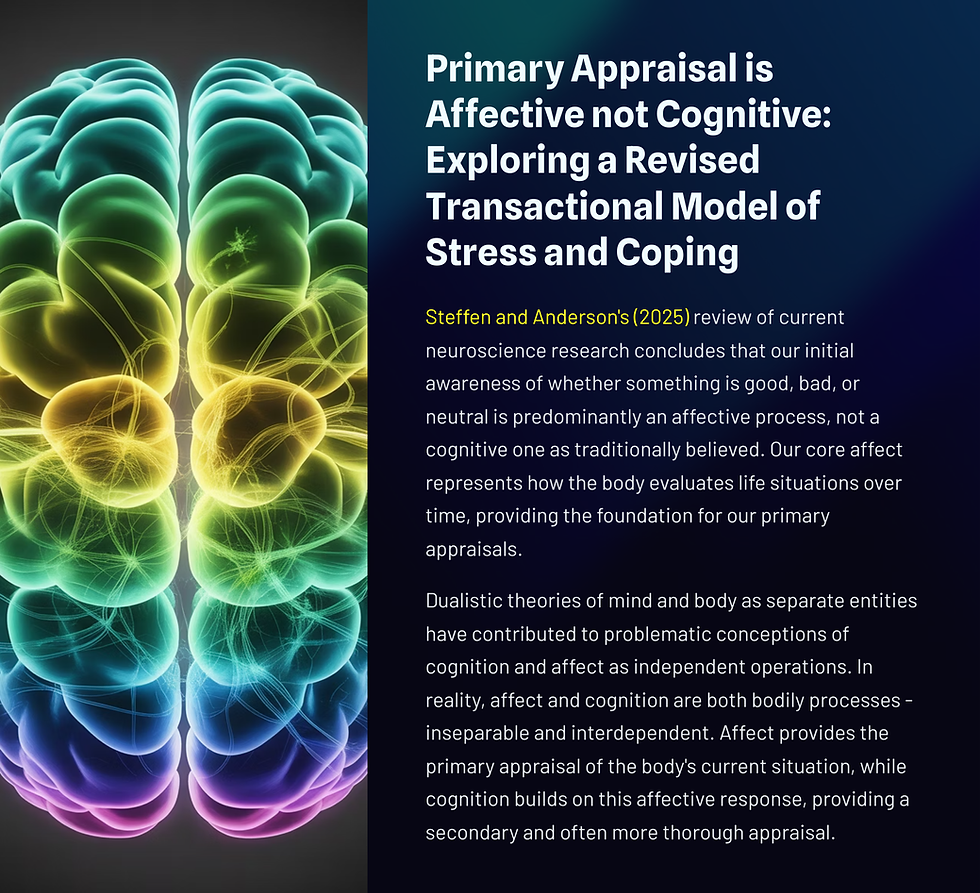
What Is The Science?

What Are The Philosophical Origins?


A Revised Transactional Model


What Is The Impact?
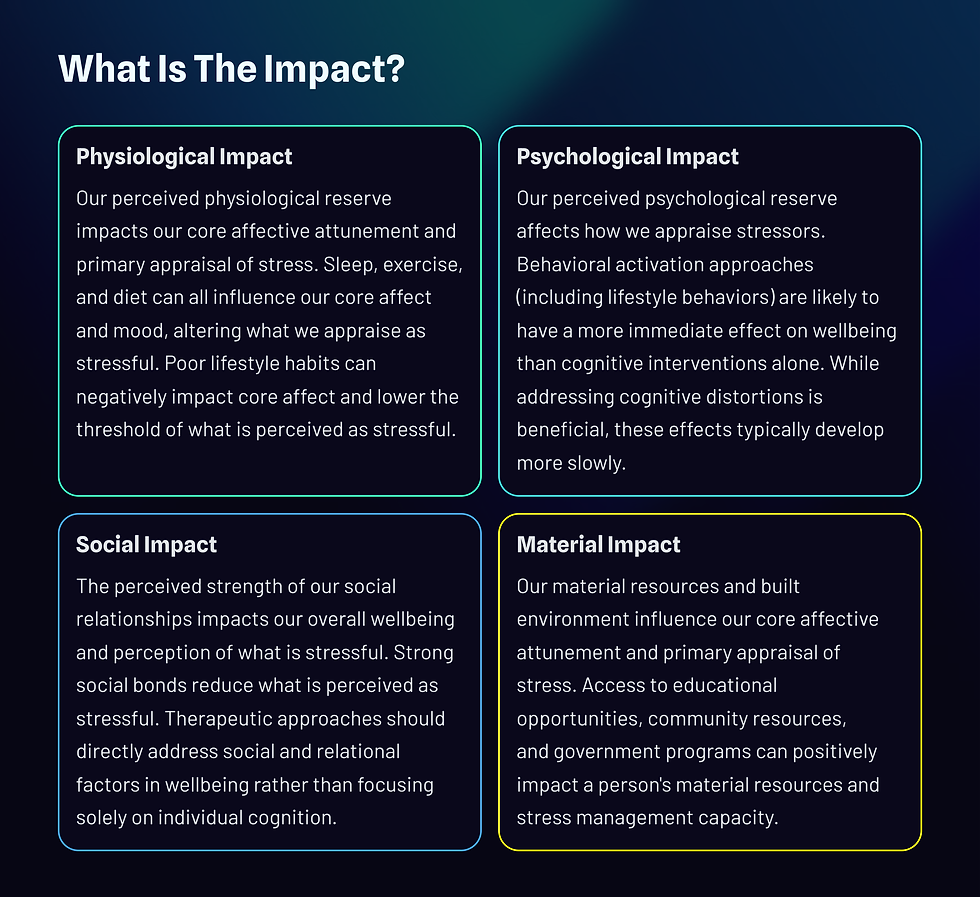
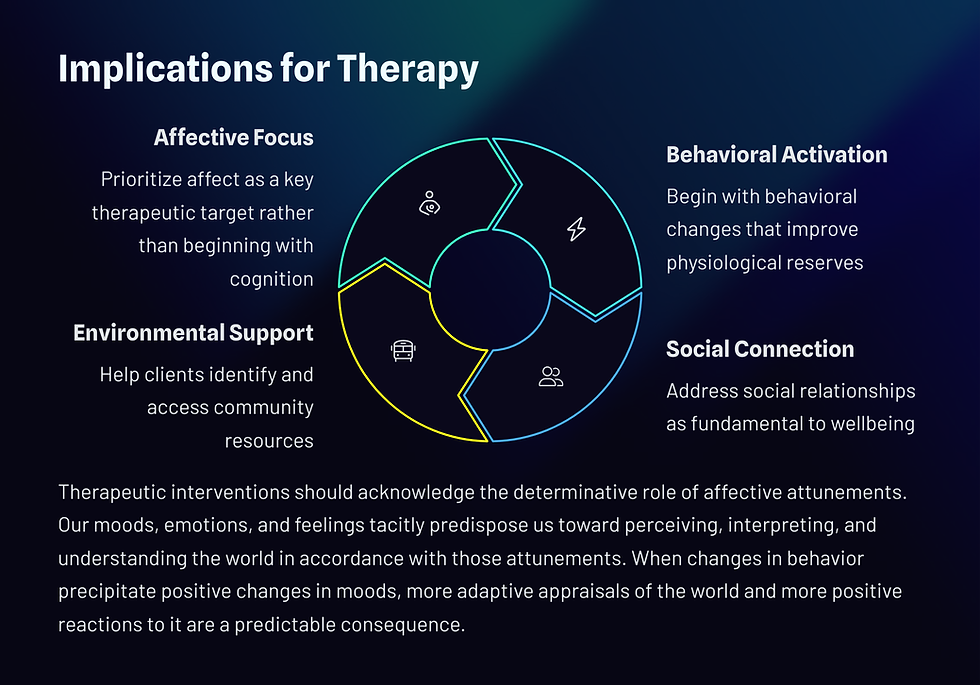
Rethinking Stress and Coping

Glossary
adaptive response: actions taken to maintain psychological or physiological stability through changes in internal or external conditions.
affect: the body's initial, automatic emotional response to stimuli or situations, serving as the foundation for further appraisal and action.
affective primary appraisal: the first stage in evaluating a situation, where emotional and bodily responses occur before conscious thought.
affective focus: a therapeutic approach that emphasizes targeting emotional experience rather than starting with cognitive interpretation.
ancient theories of mind and body: historical philosophical perspectives, such as those from plato, aristotle, and the stoics, describing how mind and body interact or are divided.
Aristotle’s dynamic view: a philosophical position stating that some parts of the mind are immortal while others are embodied, and that emotions involve both bodily responses and cognitive judgments.
behavioral activation: a therapeutic strategy that uses behavioral changes, especially lifestyle modifications, to improve mood and physiological resources.
cognition: the mental processes of thinking, interpreting, analyzing, and understanding information and experiences.
cognitive secondary appraisal: the rational evaluation that follows initial emotional responses, interpreting and contextualizing affective signals.
core affect: a fundamental, continuous bodily sense of one’s relationship to the environment over time; it underlies all emotional and conscious experiences.
core affective attunement: the body’s ongoing evaluation of its internal state in relation to current circumstances, shaping how we perceive and respond to stressors.
coping response: the integrated behavioral and emotional strategies used to manage perceived stress or imbalance.
Descartes’ dualism: the theory that mind and body are two separate and fundamentally different substances: one mental (spirit) and one physical (matter).
embodied mental states: the view that emotions and thoughts are deeply rooted in and inseparable from bodily processes and states.
environmental support: therapeutic efforts to help individuals access external resources that promote wellbeing and stress management.
Heidegger’s integration: a philosophical view that emphasizes cognition and affect as co-constitutive elements of conscious experience.
integrated neural circuits: brain systems in which cognitive and emotional processes are anatomically and functionally intertwined, rather than separate.
Kant’s subjectivity: a philosophical perspective that cognition is inherently subjective and shaped by the physical body, which also contributes affective meaning.
material impact: the influence of external physical resources, such as shelter or income, on one’s core affect and capacity to manage stress.
modern and post-modern theories of mind and body: later philosophical developments that challenge traditional dualism and emphasize integration between mind and body.
perceived environmental demands: assessments of physical, psychological, or social threats that the individual must respond to or manage.
perceived reserve capacity: internal and external resources—physiological, psychological, social, and material—that are available to meet life’s challenges.
physiological impact: the effect of bodily states (e.g., sleep, nutrition, exercise) on affective appraisal and stress perception.
Plato’s dualism: the belief that the mind is eternal and incorporeal while the body is mortal and material, leading to a separation between reason and emotion.
predictive regulation: the ability to adjust behavior and internal states by anticipating and balancing internal needs with external demands.
psychological impact: the role of mental resources and emotional states in influencing how stress is perceived and appraised.
social connection: the recognition of interpersonal relationships as a key factor in wellbeing and stress regulation.
social impact: the influence of social bonds and community on how individuals perceive and manage stressors.
Spinoza’s monism: the belief that mind and body are not separate but are different expressions of the same substance, leading to an integrated view of affect and cognition.
stoic materialism: the view that emotions arise from irrational judgments and should be moderated through reason, treating the mind and body as a single physical system.
stressor encounter: an event or condition that disrupts homeostasis, triggering immediate bodily and emotional reactions.
Reference
Steffen, P. R., & Anderson, T. (2025). Primary appraisal is affective not cognitive: Exploring a revised Transactional Model of Stress and Coping. Applied Psychophysiology and Biofeedback, 50(2), 197–211. https://doi.org/10.1007/s10484-025-09699-w
About the Author

Fred Shaffer earned his PhD in Psychology from Oklahoma State University. He earned BCIA certifications in Biofeedback and HRV Biofeedback. Fred is an Allen Fellow and Professor of Psychology at Truman State University, where has has taught for 50 years. He is a Biological Psychologist who consults and lectures in heart rate variability biofeedback, Physiological Psychology, and Psychopharmacology. Fred helped to edit Evidence-Based Practice in Biofeedback and Neurofeedback (3rd and 4th eds.) and helped to maintain BCIA's certification programs.
Support Our Friends
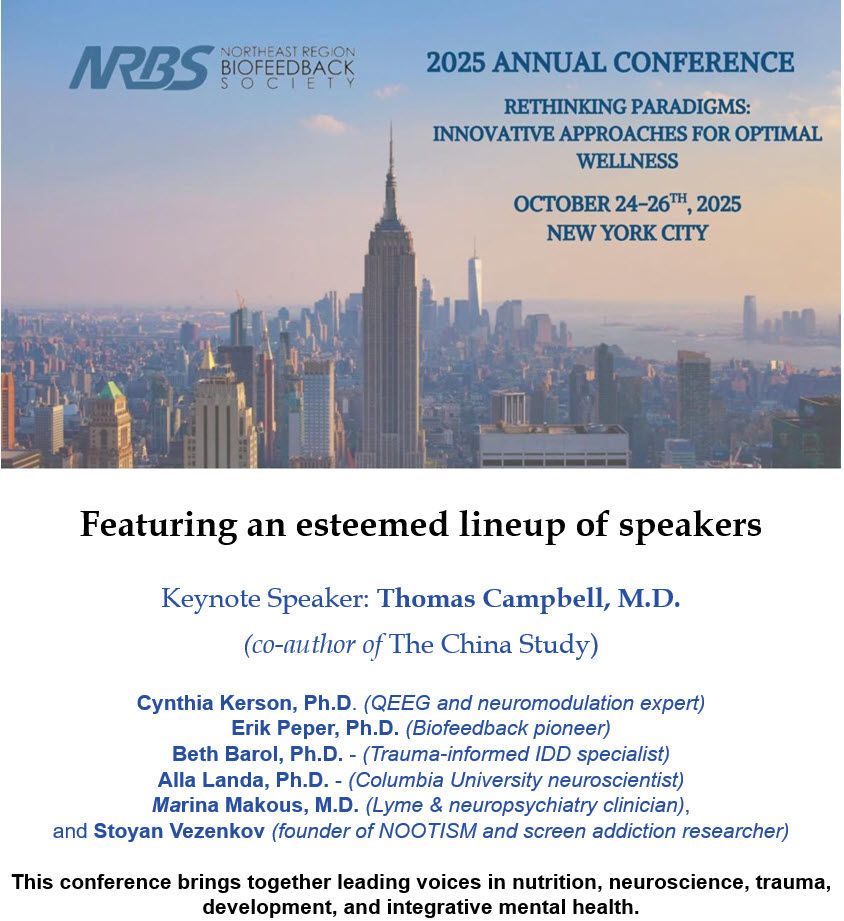
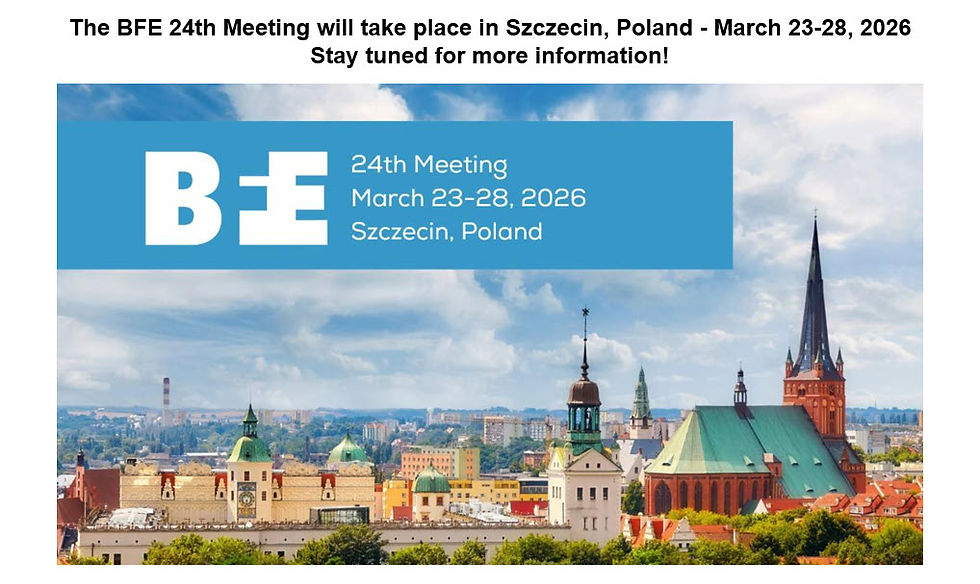






Comments